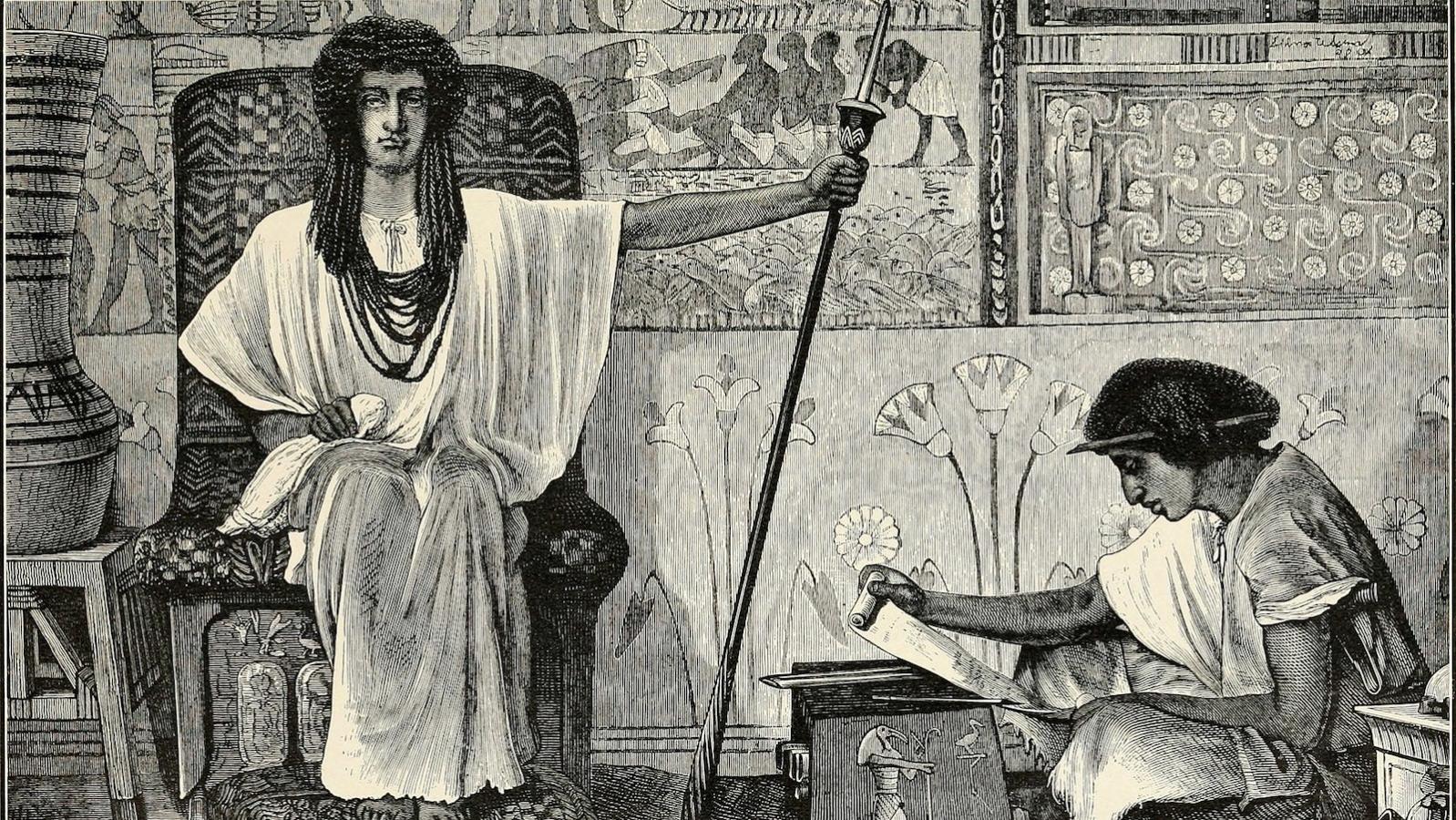Commentary on Parashat Miketz, Genesis 41:1-44:17; Numbers 28:9-15, 7:42-47
About a year ago, a congregant with a long career as a law professor and social activist approached me with an iconoclastic reading of Joseph. “Joseph isn’t a tzaddik, a righteous leader,” he said, “but a despot. He depletes the wealth of the towns, centralizes power in the cities, makes the people utterly dependent on him and then becomes responsible for enslaving them!” His interpretation gave me pause, and yet, it intrigued me.
I always give the benefit of the doubt to a novel interpretation — particularly one that heightens our awareness of totalitarianism. In Parashat Miketz, Joseph does seem to impose draconian economic policies on the Egyptians.
A New Interpretation
Interpreting Pharaoh’s dream of seven robust cows followed by seven sickly ones, Joseph believes that Egypt’s years of plenty will be followed by famine. His solution is well known: collect all the grain to be stored in the cities as a reserve. It is a drastic measure, to be sure, but one viewed as exceedingly wise. Joseph is rewarded with the office of Vizier under Pharaoh, effectively ruling all of Egypt with unchallenged authority.
Further along in the narrative, however, we read of Joseph’s policies that threaten to compromise the security and well-being of his people. After Joseph has invited his family to settle in Egypt (Genesis 47:11-27), the famine continues to the point where there is no bread left in the land.

Help us keep Jewish knowledge accessible to millions of people around the world.
Your donation to My Jewish Learning fuels endless journeys of Jewish discovery. With your help, My Jewish Learning can continue to provide nonstop opportunities for learning, connection and growth.
As payment for the bread in the storehouses, which was originally the people’s property, Joseph successively collects the people’s money, livestock, and, finally, land. Dispossessed of all their property, the people declare themselves to be “slaves” to Pharaoh, and receive seed so that they may grow their own wheat and make their own bread. Joseph reduces them to being sharecroppers on their own land.
My congregant appears to be right. Joseph robs his people of their produce, robs them again so they can buy it back and then seizes their land, effectively enslaving them.
Other voices from the tradition denounce this kind of exploitation. When the Israelites plead with the prophet Samuel to install a king over them, Samuel warns them, “He will take a tithe of your seed and your vineyards, which he will give to his courtiers and servants…He will take a tithe of your flocks and render you his slaves.” (I Samuel 7:15-17) To a word, this seems to be exactly what Joseph does!
Was Joseph Really Bad for the People?
Furthermore, we have an explicit condemnation of Joseph from Rabbi Meir ben Shmuel, known as the Rashbam, the grandson of Rashi, the great 11th-century commentator. The Rashbam compares Joseph not only to the king of Samuel’s warnings, but also to the autocratic Achashverosh, the Persian king of the Book of Esther, and Sennacherib, the ruthless Assyrian invader (see II Kings 18). It seems that reservations about Joseph are not only the product of our own minds, educated in a democratic society, but also find echoes in some of the most authoritative sources of our tradition!
But ultimately, there are problems with this critical reading of Joseph. Our judgment of Joseph as an exploitative despot does not seem to be borne out by other elements of the biblical text. After all, it is not under Joseph that the people experience excessive suffering, but under the Pharaoh “who did not know Joseph” at the beginning of Exodus.
Furthermore, Joseph’s machinations fulfill critical elements of God’s plan. His position, and Egypt’s advantageous economic position, which Joseph brings about, are crucial to the brothers reuniting and establishing the continuity of Abraham’s descendants. Finally, even after the most severe of Joseph’s policies, the text tells us that the Israelites were “fertile and increased greatly (Genesis 47:27),” implying Joseph’s centrality to the ultimate success of his people.
An Exception that Proves the Rule
This juxtaposition of Joseph’s seemingly ruthless policies and their ultimate justification leave us with an uncomfortable question: is authoritarianism justified? But there is another prism through which we can view this seeming contradiction, suggested to us by Joseph’s exalted role in the tradition as Yosef ha-tzaddik, Joseph the righteous leader. The root of the word “tzaddik” has another revealing connotation: balanced, literally, as in, for example, balanced scales, weights and measures.
To be sure, Joseph imposed austerity, but perhaps it was austerity without oppression, balanced by the pathos Joseph exhibits when he cries at being reunited with his brothers. Perhaps, through some combination of charisma and compassion, Joseph was the kind of extraordinary leader who could create a sense of common good and purpose that allowed people to embrace the sacrifices he mandated.
An apology for the text? Perhaps. A fantasy? Maybe. But a fantasy like this serves to refine our moral consciousness. Joseph just might be the exception that proves the rule. Joseph was a tzaddik because he could achieve this delicate balance–but we would be hard pressed to find another like him. We should always be wary of the uses and abuses of institutional power. Samuel’s warning is perennially our own.
Reprinted with permission from SocialAction.com, an online Jewish magazine dedicated to pursuing justice, building community, and repairing the world.



